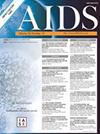艾滋病毒感染者的高血压控制与老年痴呆症风险。
IF 3.4
2区 医学
Q3 IMMUNOLOGY
引用次数: 0
摘要
目的高血压是痴呆症的主要风险因素,但持续的血压控制很难实现。设计回顾性队列研究。方法我们对 2013 年 1 月 7 日至 2021 年 12 月 31 日期间年龄≥50 岁、有高血压诊断但无痴呆诊断的人口统计学匹配的 HIV 感染者和非 HIV 感染者进行了研究。高血压控制采用疾病管理指数(DMI)进行计算,该指数反映了高血压治疗目标(收缩压 (SBP) <140 mmHg 和舒张压 (DBP) <90 mmHg)之上的程度和持续时间。DMI 值从 0% 到 100% 不等(完全控制);如果 DMI<80% (即控制时间<80%),则认为高血压 "控制不足"。计算SBP和DBP的年度更新DMI。结果该研究纳入了 3,099 名高血压 HIV 感染者(平均年龄:58.3 岁,90.2% 为男性)和 66,016 名非 HIV 感染者。在艾滋病病毒感染者(调整后危险比 [aHR] = 1.26,0.92-1.64)和非艾滋病病毒感染者(aHR = 1.27 (1.21-1.33);p-交互作用 = 0.85)中,SBP 控制不足的每一年都与痴呆风险的增加有关。同样,在 HIV 感染者(aHR = 1.43,0.90-1.95)和未感染 HIV 者(aHR = 1.71,1.50-1.93;p-交互作用 = 0.57)中,DBP 控制不足与痴呆风险增加相关。DBP控制与痴呆症之间更强的关联值得进一步研究。本文章由计算机程序翻译,如有差异,请以英文原文为准。
Hypertension control and risk of age-associated dementia in people with hiv infection.
OBJECTIVE
Hypertension is a major risk factor for dementia, but sustained blood pressure control is difficult to achieve. We evaluated whether inadequately controlled hypertension may contribute to excess dementia risk among people with HIV.
DESIGN
Retrospective cohort study.
METHODS
We studied demographically matched people with and without HIV between 7/1/2013 and 12/31/2021 who were ≥50 years old and had a hypertension diagnosis but no dementia diagnosis. Hypertension control was calculated using a disease management index (DMI) which captured degree and duration above the hypertension treatment goals of systolic blood pressure (SBP) <140 mmHg and diastolic blood pressure (DBP) <90 mmHg. DMI values ranged from 0% to 100% (perfect control); hypertension was considered "inadequately controlled" if DMI<80% (i.e., in control for <80% of the time). Annual, time-updated DMI was calculated for SBP and DBP. Associations of SPB and DPB control with incident dementia were evaluated using extended Cox regression models.
RESULTS
The study included 3,099 hypertensive people with HIV (mean age: 58.3 years, 90.2% men) and 66,016 people without HIV. Each year of inadequate SBP control was associated with greater dementia risk in both people with HIV (adjusted hazard ratio [aHR] = 1.26, 0.92-1.64) and people without HIV (aHR = 1.27 (1.21-1.33); p-interaction = 0.85). Similarly, inadequate DBP control was associated with greater dementia risk in both people with HIV (aHR = 1.43, 0.90-1.95) and people without HIV (aHR = 1.71, 1.50-1.93; p-interaction = 0.57).
CONCLUSIONS
Findings suggest the association of inadequate hypertension control with greater dementia risk is similar by HIV status. Stronger associations of DBP control with dementia merits further investigation.
求助全文
通过发布文献求助,成功后即可免费获取论文全文。
去求助
来源期刊

AIDS
医学-病毒学
CiteScore
5.90
自引率
5.30%
发文量
478
审稿时长
3 months
期刊介绍:
Publishing the very latest ground breaking research on HIV and AIDS. Read by all the top clinicians and researchers, AIDS has the highest impact of all AIDS-related journals. With 18 issues per year, AIDS guarantees the authoritative presentation of significant advances. The Editors, themselves noted international experts who know the demands of your work, are committed to making AIDS the most distinguished and innovative journal in the field. Submitted articles undergo a preliminary review by the editor. Some articles may be returned to authors without further consideration. Those being considered for publication will undergo further assessment and peer-review by the editors and those invited to do so from a reviewer pool.
 求助内容:
求助内容: 应助结果提醒方式:
应助结果提醒方式:


